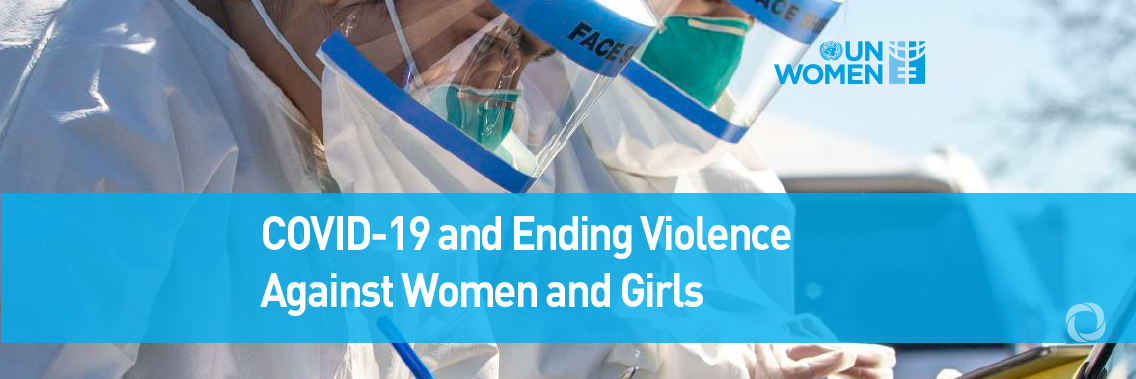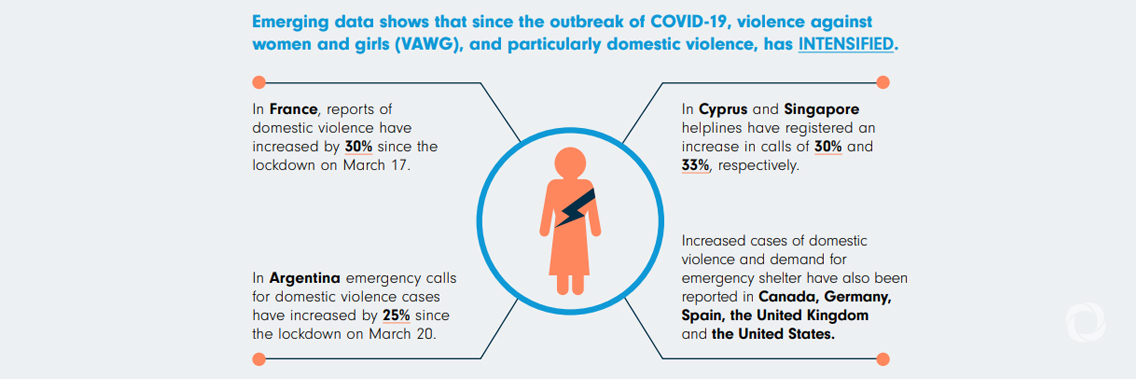With 90 countries in lockdown, four billion people are now sheltering at home from the global contagion of COVID-19. It’s a protective measure, but it brings another deadly danger. We see a shadow pandemic growing, of violence against women.
As more countries report infection and lockdown, more domestic violence helplines and shelters across the world are reporting rising calls for help. In Argentina, Canada, France, Germany, Spain, the United Kingdom, and the United States, government authorities, women’s rights activists and civil society partners have flagged increasing reports of domestic violence during the crisis, and heightened demand for emergency shelter. Helplines in Singapore and Cyprus have registered an increase in calls by more than 30 percent. In Australia, 40 percent of frontline workers in a New South Wales survey reported increased requests for help with violence that was escalating in intensity.
Confinement is fostering the tension and strain created by security, health, and money worries. And it is increasing isolation for women with violent partners, separating them from the people and resources that can best help them. It’s a perfect storm for controlling, violent behaviour behind closed doors. And in parallel, as health systems are stretching to breaking point, domestic violence shelters are also reaching capacity, a service deficit made worse when centres are repurposed for additional COVID-response.
Even before COVID-19 existed, domestic violence was already one of the greatest human rights violations. In the previous 12 months, 243 million women and girls (aged 15-49) across the world have been subjected to sexual or physical violence by an intimate partner. As the COVID-19 pandemic continues, this number is likely to grow with multiple impacts on women’s wellbeing, their sexual and reproductive health, their mental health, and their ability to participate and lead in the recovery of our societies and economy.
If not dealt with, this shadow pandemic will also add to the economic impact of COVID-19. The global cost of violence against women had previously been estimated at approximately USD 1.5 trillion. That figure can only be rising as violence increases now, and continues in the aftermath of the pandemic.
The increase in violence against women must be dealt with urgently with measures embedded in economic support and stimulus packages that meet the gravity and scale of the challenge and reflect the needs of women who face multiple forms of discrimination. The Secretary-General has called for all governments to make the prevention and redress of violence against women a key part of their national response plans for COVID-19. Shelters and helplines for women must be considered an essential service for every country with specific funding and broad efforts made to increase awareness about their availability.
Grassroots and women’s organizations and communities have played a critical role in preventing and responding to previous crises and need to be supported strongly in their current frontline role including funding that remains in the longer-term. Helplines, psychosocial support and online counselling should be boosted, using technology-based solutions such as SMS, online tools and networks to expand social support and to reach women with no access to phones or the internet. Police and justice services must mobilize to ensure that incidents of violence against women and girls are given high priority with no impunity for perpetrators. The private sector also has an important role to play, sharing information, alerting staff to the facts and the dangers of domestic violence and encouraging positive steps like sharing care responsibilities at home.
Read and download the UN-Women publication: COVID-19 and ending violence against women and girls.
Original source: UNWomen
Published on 06 April 2020


